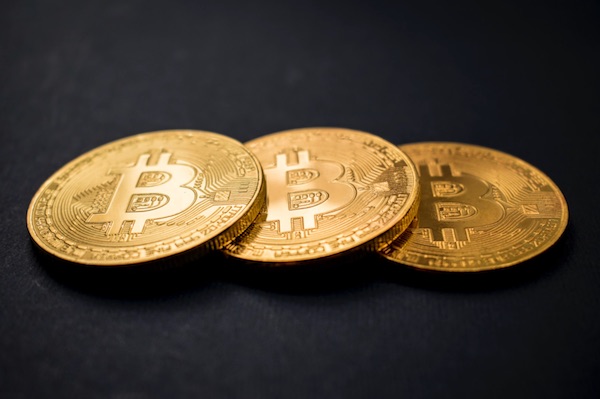Also Interesting
Rio de Janeiro: Bitcoin to be used for real estate in Brazil

Who remembered when China banned crypto mining? Seems like a very long time ago. While it was a hard pill to swallow for crypto adoption and the price of Bitcoin, the level of adoption we have seen ever since that move was made is one reason why China’s crackdown on crypto has been more of a blessing. One of those countries that have brought its A-game to cryptocurrencies is Brazil.
Brazil is not new to cryptocurrencies. The country has been in the headlines for a myriad of reasons. First, it was the second country in the world to approve Bitcoin ETFs; then, crypto started booming in the country after a series of currency devaluations and inflation dealt harshly with Brazilians. In its little stint in Brazil, a Ponzi scheme involving cryptocurrencies has also robbed people to the tune of millions of dollars. There seems to be a never-ending news
cycle about cryptocurrencies in the south-American country.
This previous week, Brazil made the headlines again. This time, the government decided it was high time they started including the option for bitcoin payment in their real estate tax system. This taxation system will first kick off in the country’s second largest city, Río de Janeiro, and over time, will extend to other parts of the country. It will be a comprehensive project, perhaps, one of the most comprehensive projects ever undertaken by the Brazilian government regarding any financial innovation, but this start is commendable.
In response to this development, Changpeng Zhao (fondly called CZ), the CEO of Binance, announced that they are setting up offices around Rio Janeiro. According to him, the mayor has played his role, and it is left to the cryptocurrency exchange giant to play hers.
Brazil’s crypto adoption over the years
Contradictions are a necessity when it comes to Brazil. The country has both the highest GDP per capita and the largest population in Latin America, yet around a quarter of the population lives below the poverty line. The minimum wage ranks in the bottom half of minimum wages around the world.
In another aspect of Brazilian contradiction, despite the government’s effort to regulate the activities of cryptocurrency and crypto exchanges in Brazil, the country ranks high amongst the countries with crypto usage, with the average crypto ownership being around two cryptocurrencies.
The minimum wage in Brazil is very low and over two-quarters of crypto users in Brazil earn just around or below the minimum wage, which means that many people are earning crypto instead. It’s also interesting to note how much more volume Bitcoin trades compared with gold- but this could just mean one thing: The future of cryptocurrency might be located there.
When will these crypto / real estate laws be enacted?
The timeframe for implementing these crypto taxes is around 2023, as reported by the economic development secretary. How the taxation will be carried out is still unclear, but several pieces of evidence suggest that the role of exchanges will be paramount in converting these crypto payments into fiat currencies, giving the government the chance to earn in full.
This way, the government is accepting cryptocurrencies as legal tender while also positioning itself for the new wave of the financial revolution. Real estate taxes will not be the end of crypto usage, as the government is looking for a workable plan to aid public transportation using cryptocurrencies. Tourism and cultural integration are two other aspects being considered, and this would most likely bring NFTs to the open.
According to the information obtained, this initiative will start in Río de Janeiro, since it is one of Brazil’s largest cities. Over time, it will extend to other cities in the country, treading carefully with the success and mistakes of the first mover, Rio.
What the future holds
The race in Latin America is heating and heating fast. The largest crypto exchange, Mercado Bitcoin, is moving to preserve its share of the crypto market in Brazil, as new entrants like Binance offer direct competition. According to Binance’s CEO, Brazil marks a strategic milestone in the company’s development, and the number of job openings in the country suggests they are in for the long haul.
Another crypto exchange that is positioning itself in Brazil is Crypto.com, looking to replicate success from the Asian space; Crypto.com is increasing its local presence and effecting integration that will make a crypto purchase via fiat very
seamlessly.
While the majority of crypto wars going on in Brazil involve exchanges, Social media giant Meta made attempts towards registering with the Brazilian government in January. The plan from Meta is geared towards designing hardware devices for bitcoin services, as the company is strongly looking towards positioning itself for the Metaverse evolution.
Conclusion
Cryptocurrency is on the rise, and Brazil may become a global leader in crypto exchanges. Already, Latin America is proving to be a hub for cryptocurrency activity. With interest in cryptocurrency growing worldwide, it’s likely that more exchanges like European exchange, Redot.com, will emerge in Latin America–making this region an important player in the global crypto market.
Just a quick question, if you don’t mind, Have you traded cryptocurrencies on LATAM-based exchanges? How do you think they compare to other exchanges? Someone here might need your answer, so keep them coming.
Also Interesting
Endorphina Slots: High-Quality Games Now at Zoome Casino Canada

If you’re looking for a provider that blends striking visuals, solid math models, and engaging themes, Endorphina slots are a must-try. Now featured at Zoome casino, Endorphina is quickly becoming a favourite among Canadian players who enjoy well-balanced volatility and great return potential.
From classic fruit machines to themed adventures with expanding wilds, Endorphina in casino environments offers reliable entertainment and serious payout opportunities. But what makes these games stand out? Let’s break down the key features, winning potential, and why you should play Endorphina games at Zoome.
Who Is Endorphina?
Endorphina is a leading game provider based in Prague, with over a decade of experience in developing online slots for regulated markets. The company is known for its well-polished video slots that balance engaging storylines with player-friendly mechanics. Their catalogue includes over 100 titles, with new releases launched regularly.
In Canada, Endorphina slots are now widely accessible through Zoome casino, one of the country’s fastest-growing platforms with a large game library and crypto-friendly payments.
Popular Endorphina Slots You Can Try at Zoome
Once you complete your zoome casino login, head over to the Endorphina slots section to discover a curated list of titles. Here are some fan favourites:
1. Hell Hot 100
● RTP (Return to Player): 96.07%
● Volatility: Medium
● Max Win: 1,000x
● Type: Classic fruit slot with a hot twist
● Why Play: Simple gameplay, blazing fast spins, and high hit frequency
2. Chance Machine 100
● RTP: 96.00%
● Volatility: Low to Medium
● Max Win: 5,000x
● Features: Expanding wilds, stacked symbols
● Why Play: Perfect for casual players who want frequent wins
3. Book of Santa
● RTP: 96.00%
● Volatility: High
● Max Win: 5,500x
● Features: Free spins with expanding symbols
● Why Play: A seasonal slot that pays like a timeless classic
4. Tribe
● RTP: 96.00%
● Volatility: Medium to High
● Max Win: 3,000x
● Special Feature: Free spins with progressive multipliers
● Why Play: Visually beautiful with strong payout structure
All endorphina games are built with HTML5, ensuring smooth play on desktop and mobile without requiring downloads.
Are There Endorphina Free Slots?
Yes! Endorphina free slots are available for demo play directly on Zoome. This means Canadian players can try out their favourites before making a real-money commitment. Free versions include all the same features, visuals, and mechanics — great for getting familiar with a game’s volatility and bonus structure.
To access, simply log in or click the “Demo” button on any title from the Endorphina section on Zoome.
Zoome Casino Bonuses and Endorphina Integration
Zoome casino offers several bonuses that can be used specifically on Endorphina slots, including:
● Welcome bonuses with free spins on selected Endorphina titles
● Reload bonuses for returning players
● Cashbacks and weekend tournaments featuring endorphina slot themes
● Seasonal campaigns with exclusive zoome casino promo codes
New players should check for a potential zoome no deposit bonus, as it occasionally applies to Endorphina’s most popular games like Book of Santa or Hell Hot 100.
RTP, Win Rate & Performance Metrics
Endorphina designs its games with a balance of fairness and entertainment. Here’s a general breakdown:
Metric Range/Typical Value
RTP 96.00% – 96.07%
Average Hit Frequency ~1 in 4 spins
Max Exposure (Base Game) 1,000x to 5,500x
Bonus Trigger Frequency 1 in 120–150 spins (approx.)
Average Session Duration 15–25 mins (based on volatility)
These stats make Endorphina in casino environments appealing to both casual players and slot grinders who understand variance and bankroll management.
Play Anywhere, Anytime
Zoome supports mobile-first gameplay. Every endorphina slot loads seamlessly on iOS and Android without needing an app. With fast servers, secure encryption, and a clean layout, spinning is quick, intuitive, and glitch-free.
Whether you’re chasing a bonus round or enjoying a few free spins on your lunch break, Zoome makes the experience smooth and hassle-free.
Final Thoughts
With its mix of quality graphics, strong RTP, and easy bonus access, Endorphina slots are a solid choice for Canadian players. Whether you’re trying endorphina free slots in demo mode or diving into real-money play via zoome casino login, there’s a title to suit your style.
From well-known hits like Hell Hot 100 to sleeper favourites like Tribe, this provider continues to prove why Endorphina in casino settings is a winning combination. And with regular zoome casino promo code campaigns and potential zoome no deposit bonus access, it’s the perfect time to start spinning.
Ready to explore the full lineup? Visit Zoome and see what Endorphina has to offer — your next big win could be one spin away.
Also Interesting
Tips to build an income stream through betting

Financial freedom means different things to different people. Some seek to clear debt or reduce working hours. Others aim to build an income stream separate from traditional employment. Betting is often seen as entertainment, but some treat it as a potential method for financial gain.
It is not a simple route. Success in betting depends on skill, patience, and clear risk control. Casual bets and chasing losses are not the same as long-term planning. Play slots and live casino online deals may attract interest, but true gains require a well-developed approach grounded in calculation,
not luck.
Some treat betting as a serious income project. Like investing, it involves monitoring markets, sticking to rules, and managing emotion. These habits shape outcomes more than any single win or loss.
The Role of Strategy and Market Choice
Building consistent returns from betting starts with discipline. Most success stories come from people who specialize in specific markets. They avoid randomness and focus on repeatable patterns. This reduces risk and allows room for structured decisions.
For some, sports betting offers the best value. Others prefer slots, roulette, or blackjack. Success in each area depends on the ability to control the betting environment. Choosing fixed budgets, setting limits, and logging results all contribute to a more sustainable system.
In Ireland and the UK, platforms now offer a wider range of services. These include analytics tools, stat-based bets, and account dashboards. Markets like Slots and table games in Ireland are especially popular among users who combine short sessions with targeted goals.
Key traits of long-term betting approaches include:
● Specialising in specific games or sports.
● Avoiding emotional or rushed bets.
● Logging every session and reviewing performance.
● Staking only a fixed portion of the bankroll per event.
Psychological Factors and Risk Limits
Financial growth through betting requires mental control. Most losses in gambling happen when people act without a plan. Emotional decisions, such as doubling stakes after a loss, often lead to poor outcomes.
Structured bettors approach the activity with neutral judgement. They view each bet as part of a larger system, not an isolated moment. This approach reduces stress and protects capital. Understanding the limits of control also helps. For example, not every market behaves the same
way each week.
Many betting platforms now offer tools that assist with self-monitoring. These include loss caps, spending summaries, and trend reports. These systems support the user but cannot replace careful thinking. Understanding the connection between strategy risk and decision making can lead to
better choices, both short and long-term.
Economic Context and the Role of Discipline
The idea of using betting as a route to financial freedom often attracts attention during economic stress. Some people look for faster income options when prices rise or wages stagnate. However, betting is not a guaranteed path. It only works when treated as a skill-based discipline, not a
shortcut.
Those who see results often treat betting like a second job. They put in regular hours for research, review performance metrics, and stick to a strict process. This removes guesswork and replaces it with control.
Having multiple sources of income is one part of building financial freedom. Betting can be one of those if it is paired with discipline, patience, and analysis. It is not passive income. It requires consistent effort and awareness.
Sensible Goals and Sustainable Progress
Success with betting should not be measured in jackpots or sudden windfalls. Small, repeatable profits are more stable. The aim is to grow a bankroll slowly, avoid major losses, and learn from every result. This mindset supports steady progress and avoids burnout.
Financial freedom through betting is possible for some. However, it depends on the user, not the platform. Planning, structure, and clear risk boundaries matter more than the type of bet. For those who view betting as a long-term activity rather than a quick fix, it can play a role in building
independence.
As always, betting should be treated with care and clear intent. When combined with focus and habit, it can support a wider plan toward financial freedom. However, without those foundations, it is more likely to create setbacks than solutions.
-

 Alberta12 hours ago
Alberta12 hours agoAlberta Independence Seekers Take First Step: Citizen Initiative Application Approved, Notice of Initiative Petition Issued
-

 Crime11 hours ago
Crime11 hours agoNational Health Care Fraud Takedown Results in 324 Defendants Charged in Connection with Over $14.6 Billion in Alleged Fraud
-

 Health10 hours ago
Health10 hours agoRFK Jr. Unloads Disturbing Vaccine Secrets on Tucker—And Surprises Everyone on Trump
-

 Bruce Dowbiggin13 hours ago
Bruce Dowbiggin13 hours agoThe Game That Let Canadians Forgive The Liberals — Again
-

 Alberta1 day ago
Alberta1 day agoCOVID mandates protester in Canada released on bail after over 2 years in jail
-

 Crime2 days ago
Crime2 days agoProject Sleeping Giant: Inside the Chinese Mercantile Machine Linking Beijing’s Underground Banks and the Sinaloa Cartel
-

 Business1 day ago
Business1 day agoCanada’s loyalty to globalism is bleeding our economy dry
-

 Alberta2 days ago
Alberta2 days agoAlberta uncorks new rules for liquor and cannabis






